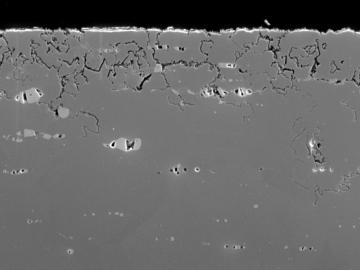Filter News
Area of Research
News Topics
- (-) Bioenergy (1)
- (-) Molten Salt (1)
- 3-D Printing/Advanced Manufacturing (6)
- Advanced Reactors (1)
- Biomedical (2)
- Buildings (1)
- Chemical Sciences (4)
- Clean Water (1)
- Composites (4)
- Computer Science (1)
- Coronavirus (1)
- Critical Materials (5)
- Decarbonization (1)
- Energy Storage (7)
- Environment (1)
- Fusion (2)
- Isotopes (2)
- Materials (12)
- Materials Science (19)
- Microscopy (6)
- Nanotechnology (8)
- Neutron Science (4)
- Nuclear Energy (3)
- Physics (2)
- Polymers (6)
- Quantum Computing (1)
- Quantum Science (1)
- Space Exploration (1)
- Sustainable Energy (3)
- Transportation (6)
Media Contacts

The presence of minerals called ash in plants makes little difference to the fitness of new naturally derived compound materials designed for additive manufacturing, an Oak Ridge National Laboratory-led team found.

Oak Ridge National Laboratory scientists analyzed more than 50 years of data showing puzzlingly inconsistent trends about corrosion of structural alloys in molten salts and found one factor mattered most—salt purity.




